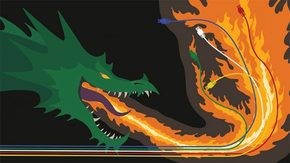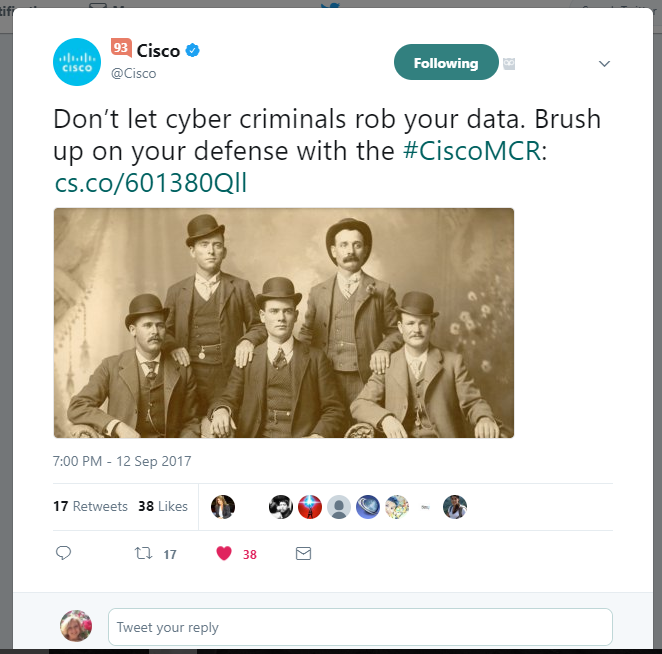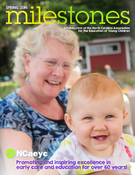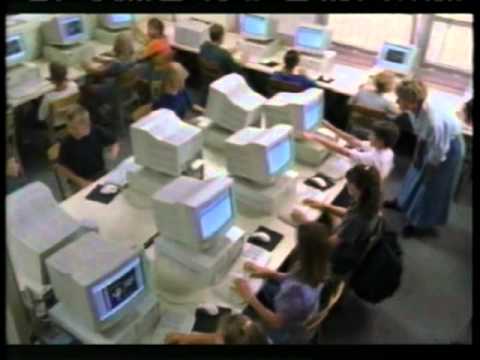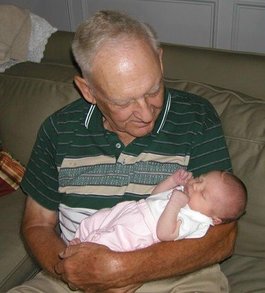Blogs & Articles
Please view all work sample pages in full website view instead of mobile view. If you are currently viewing site on a mobile device, select "Web" in bottom left corner.
|
Blog: What DevOps for AD/ADAS Looks Like
I wrote this blog to coincide with the announcement of a new open and integrated ecosystem for autonomous driving development. The blog received 400 views in just under 2 months. The coordinated announcement increased referral traffic to our website 2,300% and increased visits 157%.
Blog: 3 Reasons most modernization projects may not deliver business valueEvergreen thought leadership blog ghost-written for Director of IBM Application Platform.
(c) IBM Corporation, 2019 Global enterprises all face a similar issue: how to merge the value of existing assets, including infrastructure, applications, workloads and data, with new cloud-native efforts that enable greater speed to innovation and scaling for competitive advantage. Blog: What the Nyetya Ransomware Attack Means for Banks
(c) Cisco Systems, Inc., July 1, 2017
Blog + Tweets: How to Prevent the Bank Robbery No One Can See(c) Cisco Systems, Inc., August 29, 2017
Blog: Think Outside the Box Store: 5 Retail Market Disruptions that can Win Customer Loyalty
May 4, 2015
|
Blog: When modernization works: How Finanz Informatik transformed its businessEvergreen thought leadership blog ghost-written for Director of IBM Application Platform.
(c) IBM Corporation, 2019 Finanz Informatik, a banking services firm based in Germany, realized immediate value from its modernization project and instituted a culture of change inside the organization. Blog: Ransomware Lessons for the Financial Services Industry(c) Cisco Systems, Inc., May 16, 2017
Blog: Is Online Banking Getting Old?(c) Cisco Systems, Inc., June 12, 2017
Online & Print Article:The Secret to Making Technology Work in Pre-K(c) 2014 NCaeyc Milestones magazine
A magazine article / case study published in Milestones magazine by the North Carolina Association for the Education of Young Children, ghost-written on behalf of company President. The article discusses how pre-Kindergarten teachers at McDowell County Head Start in North Carolina used Hatch Early Learning's tablet technology and software to overcome the language barrier and the technology gap for both ELL students and their parents. |
Blog: What Banking (and Life) Could Look Like in 2021(c) Cisco Systems, Inc., August 15, 2017
Blog: Process Paralysis? Create a More Agile Workplace(c) Cisco Systems, Inc., July 26, 2017
Blog: 4 Ways Collaborative Technology Can Lead to Happier Bank Staff(c) Cisco Systems, Inc., July 12, 2017
Blog + Tweets: 3 Ways Retail Banks Can Secure Their Digital Future(c) Cisco Systems, Inc., October 11, 2017
Tweet example 1 Tweet example 2 |
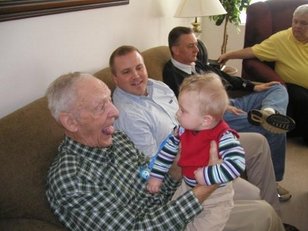
On the night before Memorial Day in 2007 I joined my grandparents in their comfortable, dimly-lit living room inside their home of almost 60 years to watch a television show about the history of American wars. My grandfather Paul Barney, 84 years old, was fixated on the screen, sitting upright and alert in his favorite recliner. “Granddaddy,” as the family lovingly calls him, was awarded a purple heart for his service in the war.
When footage of soldiers landing on the beaches of Normandy in WWII came on the screen, my grandfather jumped forward to point and say, "That's what we landed in too! The boats were packed full, and they'd come up to the beach and open them up, and tell you to jump out, and you'd tread through the water and then hit the ground and slide up the beach as fast as you could. I was there two or three weeks after all that," he said, motioning toward the images of the legendary D-Day invasion.
I'd heard him talk about his experience in the war many times before, but I don't think I'd ever really listened. Many of us don't, when our grandfathers speak of muddled, jumbled, stumbled-over memories of days before we were born.
Granddaddy continued, "I remember we got up to one part of the beach, and you looked around and all you could see was where they had died a few weeks ago."
"Graves from D-Day?" I asked.
"Yeah...no, well, they were just sticks coming out of the ground," as he held up his fingers in the form of a cross. "Just temporary then. They said they were goin' to fix 'em up right, they said they did," and he looked at me with a crinkled, disbelieving look on his face. "They say they were going to at least, don't know if they ever did."
The photographs of the Normandy American Memorial and Cemetery in Normandy, France depict a stunning scene: seemingly endless rows of pristine, white crosses jut out of the ground, a peaceful, solemn contrast to the sparkling, blue ocean in the distance...and lifetimes away from the gore, pain and sacrifice that he witnessed sixty years ago. Maybe that is not even what my grandfather meant. Maybe no matter how peaceful the scene looks today, it can't ever be "fixed" in his mind?
"Well I was there just two days after the big Battle of the Bulge started," he continued. "and the fighting was still going on. I'm lucky I wasn't there a few days earlier. Our platoon leader, he was killed," and Granddaddy closed his eyes, winced and put his hand on his head, as if he was trying to remember, or as if he was trying not to.
"The medic, he was shot, several of the other guys were injured....When my arm was hurt, the shells were just whizzing by. We dove into a hole and the shrapnel came into my arm and almost took it off. I remember I just sat up and looked at it and tried to move it and it just hung there. I thought they were surely goin' to have to take it off." He held his arm and made the motion that it did that day, just swinging back and forth, barely hanging on by the bone.
"There was another guy who got shot in the leg next to me, and we had to move up, because that's what we were doing, moving in, you know? After the shelling stopped, he and I were going to go back to the infirmary, but the ambulances were full so we had to ride in carts. As soon as we got up and started going--and we didn't get any further from here to that building out there," he said as he pointed at the door, toward a new office building that was recently built a few hundred yards away, "when boy, a whole other round of shells started coming in! I didn't think I could get down to miss them because of my arm, but a sergeant came up behind me and kinda pushed me in the back and I went down face first on the ground. If he wouldn't have done that I don't know what would've happened, you know?"
I nodded and Granddaddy continued. "So there weren't any ambulances and they put us in carts to take us back. I got injured about 4 or 5 in the evening, and it was after midnight by the time I got to the infirmary. It took so long because when you have shells going through the air like that, through the trees, you can't walk on the ground like you can back here through the woods," pointing in the other direction, to the wooded area at the rear of his property with a neatly mowed pathway. "There were tree limbs all over the place, all over the ground, and the carts had to wheel over all that and they were all so full of our injured men, and injured Germans who were all being taken back...that's why it took so long. I was so weak when we got there that I couldn't even hold my head up because the blood had just been spurting out that whole time. Then they finally put me in a jeep to take me to another hospital and the driver told me to just lay my head on his shoulder, and I did."
His recollection of the story ended there, because at this point during the program, the story of grieving parents of recent fallen soldiers in Iraq, a part of the growing Section 60 of Arlington National Cemetery, was told. Actress Dianne Weist portrayed the heartbreaking and poignant story of Gina Barnhurst, who lost her son during the Iraq war, and still visits his grave every week and writes him letters. While this part of the program was on, you could have heard a pin drop in the living room. We could hear the loud, gut-wrenching sobs of the mother through the actress's wireless mic that had not yet been turned off as the two embraced.
Then my grandfather quietly added, "You know the boy they talked about on there just now was 20. That's how old I was when all that happened, too. I was 20 years old." It was a moving, earth-shattering, coming-of-age moment of realization for me. In that moment, his story became real and he became more than “Granddaddy.” War, sacrifice, loss of life and the frightening experience of a 20-year-old soldier became real as his story melded with the sobs of the mother on TV.
Granddaddy made it back. None of my family would even be here if he had not; it was after the war that he met my grandmother. He made it through surgery and they saved his arm. He has a huge indentation in the middle of his upper right arm – you can tell where the shrapnel went in and then out, leaving just a tidbit of the bone for his arm to still dangle from, but enough for the surgeons to somehow miraculously save it during the days of very rudimentary medicine.
He returned home to North Carolina and worked incredibly hard his whole life. He raised two boys and one girl with less than a high school education by working in a factory setting at the same company from the time he got back from the war and met my grandmother and got married, until he retired at age 65. He saved money and provided for his family, and he still helps us all out today whenever he can. He picked me up from after-school activities almost every day after high school because I didn't have a car and my mother worked, but I wanted to participate. He built the house that he lives in still today before his youngest son was born. He's stubborn and frugal, kind and generous, funny and mischievous, wise and religious, and he passed down his hay fever allergies to the whole family. He also snores really loudly. He pretends he is bothered by my grandmother's pets and doesn't like them but when she's not around I see him pet them and talk to them. He kinda limps because his knees are bad but he still tills and grows a garden full of vegetables every summer. He loves his wife and his family and he goes to church three times each week. He has four grandchildren and eight great-grandchildren.
Granddaddy, like all of our country’s service men and women, is also a hero, courageous enough to live through experiences more horrible than my wildest imagination could conjure. Today many regard war as a news story from another country or a political debate, and associate Memorial Day only with the beginning of summer. That night I saw both as more than that. It’s about people...people giving their lives or risking them for something we all inherently believe in – freedom. That's what he fought for, what they all are fighting for: my right to speak and yours to agree or disagree, and our ability to do what we deem necessary safely without fear in the company of those we love.
When footage of soldiers landing on the beaches of Normandy in WWII came on the screen, my grandfather jumped forward to point and say, "That's what we landed in too! The boats were packed full, and they'd come up to the beach and open them up, and tell you to jump out, and you'd tread through the water and then hit the ground and slide up the beach as fast as you could. I was there two or three weeks after all that," he said, motioning toward the images of the legendary D-Day invasion.
I'd heard him talk about his experience in the war many times before, but I don't think I'd ever really listened. Many of us don't, when our grandfathers speak of muddled, jumbled, stumbled-over memories of days before we were born.
Granddaddy continued, "I remember we got up to one part of the beach, and you looked around and all you could see was where they had died a few weeks ago."
"Graves from D-Day?" I asked.
"Yeah...no, well, they were just sticks coming out of the ground," as he held up his fingers in the form of a cross. "Just temporary then. They said they were goin' to fix 'em up right, they said they did," and he looked at me with a crinkled, disbelieving look on his face. "They say they were going to at least, don't know if they ever did."
The photographs of the Normandy American Memorial and Cemetery in Normandy, France depict a stunning scene: seemingly endless rows of pristine, white crosses jut out of the ground, a peaceful, solemn contrast to the sparkling, blue ocean in the distance...and lifetimes away from the gore, pain and sacrifice that he witnessed sixty years ago. Maybe that is not even what my grandfather meant. Maybe no matter how peaceful the scene looks today, it can't ever be "fixed" in his mind?
"Well I was there just two days after the big Battle of the Bulge started," he continued. "and the fighting was still going on. I'm lucky I wasn't there a few days earlier. Our platoon leader, he was killed," and Granddaddy closed his eyes, winced and put his hand on his head, as if he was trying to remember, or as if he was trying not to.
"The medic, he was shot, several of the other guys were injured....When my arm was hurt, the shells were just whizzing by. We dove into a hole and the shrapnel came into my arm and almost took it off. I remember I just sat up and looked at it and tried to move it and it just hung there. I thought they were surely goin' to have to take it off." He held his arm and made the motion that it did that day, just swinging back and forth, barely hanging on by the bone.
"There was another guy who got shot in the leg next to me, and we had to move up, because that's what we were doing, moving in, you know? After the shelling stopped, he and I were going to go back to the infirmary, but the ambulances were full so we had to ride in carts. As soon as we got up and started going--and we didn't get any further from here to that building out there," he said as he pointed at the door, toward a new office building that was recently built a few hundred yards away, "when boy, a whole other round of shells started coming in! I didn't think I could get down to miss them because of my arm, but a sergeant came up behind me and kinda pushed me in the back and I went down face first on the ground. If he wouldn't have done that I don't know what would've happened, you know?"
I nodded and Granddaddy continued. "So there weren't any ambulances and they put us in carts to take us back. I got injured about 4 or 5 in the evening, and it was after midnight by the time I got to the infirmary. It took so long because when you have shells going through the air like that, through the trees, you can't walk on the ground like you can back here through the woods," pointing in the other direction, to the wooded area at the rear of his property with a neatly mowed pathway. "There were tree limbs all over the place, all over the ground, and the carts had to wheel over all that and they were all so full of our injured men, and injured Germans who were all being taken back...that's why it took so long. I was so weak when we got there that I couldn't even hold my head up because the blood had just been spurting out that whole time. Then they finally put me in a jeep to take me to another hospital and the driver told me to just lay my head on his shoulder, and I did."
His recollection of the story ended there, because at this point during the program, the story of grieving parents of recent fallen soldiers in Iraq, a part of the growing Section 60 of Arlington National Cemetery, was told. Actress Dianne Weist portrayed the heartbreaking and poignant story of Gina Barnhurst, who lost her son during the Iraq war, and still visits his grave every week and writes him letters. While this part of the program was on, you could have heard a pin drop in the living room. We could hear the loud, gut-wrenching sobs of the mother through the actress's wireless mic that had not yet been turned off as the two embraced.
Then my grandfather quietly added, "You know the boy they talked about on there just now was 20. That's how old I was when all that happened, too. I was 20 years old." It was a moving, earth-shattering, coming-of-age moment of realization for me. In that moment, his story became real and he became more than “Granddaddy.” War, sacrifice, loss of life and the frightening experience of a 20-year-old soldier became real as his story melded with the sobs of the mother on TV.
Granddaddy made it back. None of my family would even be here if he had not; it was after the war that he met my grandmother. He made it through surgery and they saved his arm. He has a huge indentation in the middle of his upper right arm – you can tell where the shrapnel went in and then out, leaving just a tidbit of the bone for his arm to still dangle from, but enough for the surgeons to somehow miraculously save it during the days of very rudimentary medicine.
He returned home to North Carolina and worked incredibly hard his whole life. He raised two boys and one girl with less than a high school education by working in a factory setting at the same company from the time he got back from the war and met my grandmother and got married, until he retired at age 65. He saved money and provided for his family, and he still helps us all out today whenever he can. He picked me up from after-school activities almost every day after high school because I didn't have a car and my mother worked, but I wanted to participate. He built the house that he lives in still today before his youngest son was born. He's stubborn and frugal, kind and generous, funny and mischievous, wise and religious, and he passed down his hay fever allergies to the whole family. He also snores really loudly. He pretends he is bothered by my grandmother's pets and doesn't like them but when she's not around I see him pet them and talk to them. He kinda limps because his knees are bad but he still tills and grows a garden full of vegetables every summer. He loves his wife and his family and he goes to church three times each week. He has four grandchildren and eight great-grandchildren.
Granddaddy, like all of our country’s service men and women, is also a hero, courageous enough to live through experiences more horrible than my wildest imagination could conjure. Today many regard war as a news story from another country or a political debate, and associate Memorial Day only with the beginning of summer. That night I saw both as more than that. It’s about people...people giving their lives or risking them for something we all inherently believe in – freedom. That's what he fought for, what they all are fighting for: my right to speak and yours to agree or disagree, and our ability to do what we deem necessary safely without fear in the company of those we love.


